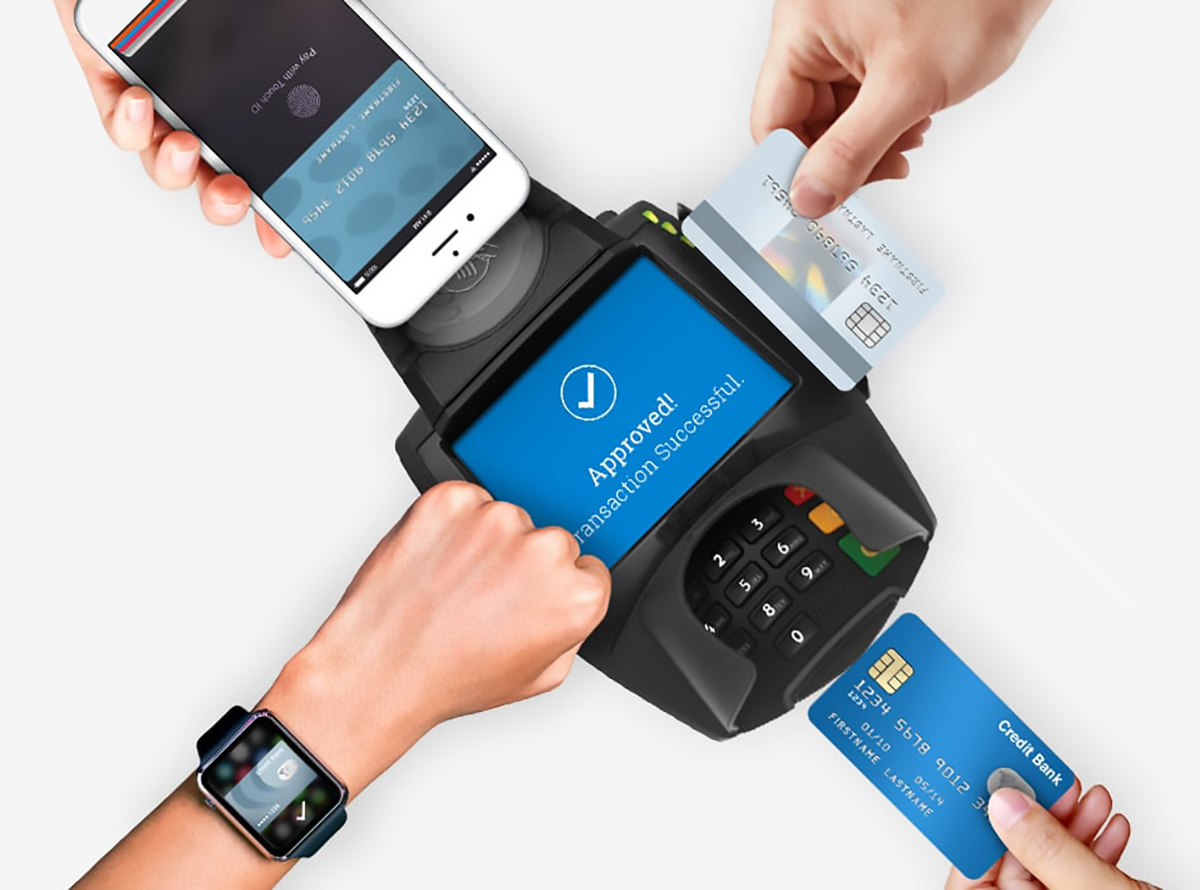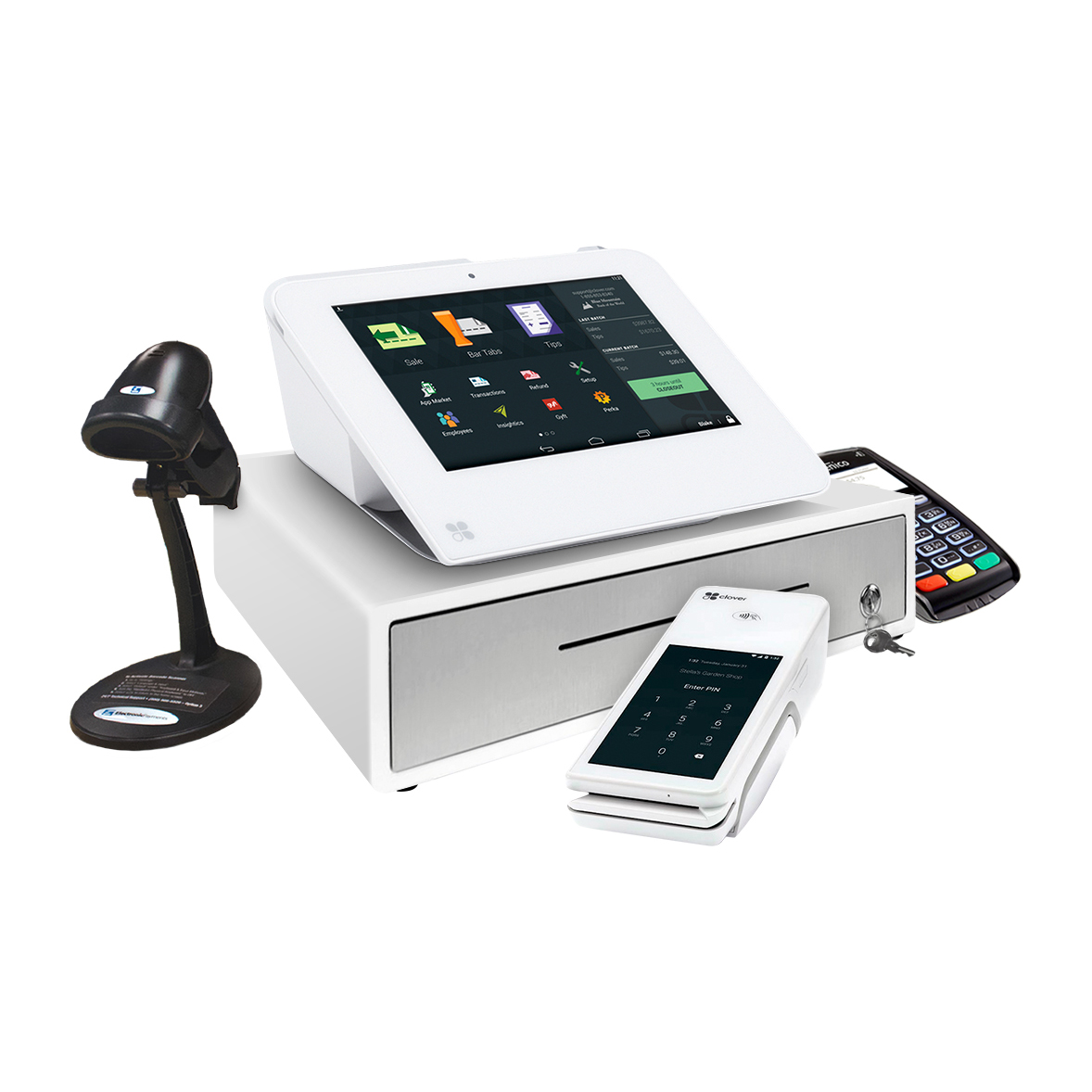Our cloud-based platform is so seamlessly integrated you would think it was part of your accounting software.





How to Streamline Payments with QuickBooks Credit Card Payment
Integrating QuickBooks credit card payment solutions can revolutionize how businesses handle transactions. With seamless integration across QuickBooks Online, Desktop, and POS, accessing quick and efficient payment processes becomes a reality. By adopting smart payment strategies, businesses can enjoy reduced fees and improved cash flow.
Leveraging advanced invoicing tools, users can automate the process of sending, tracking, and reconciling invoices. This automation not only saves time but also reduces manual errors, offering business owners peace of mind. The POS Brokers specialize in these integrations, ensuring a hassle-free setup for all QuickBooks credit card payment systems.
Are Lower Fees Possible with QuickBooks Accept Payment?
Businesses often ask if it's possible to lower fees using QuickBooks credit card payment. The answer is a resounding yes. By negotiating better rates and utilizing cash discount options, companies can significantly reduce their processing costs. Features like zero-cost processing and Level 2/3 interchange optimization further decrease expenses while enhancing payment efficiency.
QuickBooks users can also explore merchant account options tailored to fit their business models more effectively. These accounts typically offer lower fees without compromising service quality. It's about finding the right balance that suits your company's needs and volume of transactions.
Enhancing Cash Flow with QuickBooks Credit Card Payment
Cash flow is the lifeblood of any business. With QuickBooks accept payments, businesses can significantly enhance their cash flow management. Automated invoicing and payment collection ensure timely receipts, improving the overall financial health of the company.
- Implement automated reminders to ensure timely payments.
- Utilize custom invoice templates for clear communication.
- Schedule billing cycles that align with your cash flow needs.
By optimizing payment processing and reducing delays, businesses can maintain a steady financial footing and reduce the risk of cash shortages.
Top Benefits of QuickBooks Credit Card Payment
QuickBooks credit card payment systems offer several benefits that can transform business operations. One major advantage is the integration with Biller Genie, which automates collections and reconciliation processes. This integration streamlines financial tasks, allowing businesses to focus on growth and customer satisfaction.
Another benefit is the enhanced security and compliance features. With full PCI compliance and Level 2/3 processing, businesses can safely handle transactions, gaining customer trust. This security extends to ACH and recurring payments, further broadening the range of options available.
Custom invoicing adds another layer of professionalism to business operations. By allowing clients to store multiple payment methods, businesses can offer a seamless experience that enhances customer loyalty.
Implementing QuickBooks Credit Card Payment Solutions: A Step-by-Step Guide
Implementing QuickBooks credit card payment systems in your business requires careful planning and execution. Here are the steps:
- Assess Your Needs: Evaluate your current payment processing needs and identify areas of improvement.
- Select a Merchant Account: Choose an account that offers the best rates and services for your business volume.
- Integrate Systems: Work with experts to seamlessly integrate QuickBooks payment solutions into your existing setup.
- Train Your Team: Ensure your staff is well-versed in using the new system efficiently.
- Monitor and Adjust: Regularly review the system's effectiveness and make necessary adjustments to optimize performance.
By following these steps, businesses can fully leverage the capabilities of QuickBooks credit card payment, boosting efficiency and bottom-line results.

Why QuickBooks Payment Processing is a Game Changer
QuickBooks payment processing stands out for its seamless integration with various QuickBooks platforms, allowing users to manage payments efficiently. By opting for QuickBooks payment processing, businesses can connect with low-fee merchant services, ensuring that every transaction is as cost-effective as possible. Having spent over two decades in the financial tech industry, I've seen firsthand how this integration can save both time and money.
I recall a client who switched to QuickBooks payment processing and quickly noticed a substantial reduction in processing fees, thanks to cash discount options and Level 2/3 interchange optimization. Such features enhance not only the user experience but also cash flow management.
Steps to Seamlessly Integrate QuickBooks Payment Processing
- Install QuickBooks Online, Desktop, or POS, ensuring compatibility with your current setup.
- Sign up for a QuickBooks merchant account through The POS Brokers.
- Negotiate competitive credit card fees tailored to your business volume.
- Enable automated invoicing and payment reconciliation features.
- Utilize Biller Genie for automated collections and reminders.
Following these steps will reduce processing headaches and optimize payment workflows, making QuickBooks payment processing an essential part of any business's financial strategy.
What Are the Benefits of Merchant Services?
Utilizing QuickBooks payment processing means access to superior merchant services. These services provide a range of benefits, including:
- Lower transaction fees through strategic negotiation and processing techniques.
- Automated invoicing and branding options that strengthen your professional image.
- Real-time reconciliation to keep financial records accurate and up-to-date.
By incorporating such features, businesses can not only improve financial accuracy but also enhance their overall customer interaction through easier and faster payment processing.
How Do I Set Up QuickBooks Payment Processing?
Setting up QuickBooks payment processing is straightforward. First, ensure your software version supports payment processing. Next, choose a reliable merchant service provider. Finally, integrate your payment solutions into QuickBooks, either online or desktop, to automate and streamline your billing processes.
Many businesses have dramatically improved their invoicing practices by switching to this system, ensuring both efficiency and client satisfaction. When I helped a small business implement these changes, they reported a 20% increase in payment reliability and speed within just a few months.
Expert Insights on QuickBooks Payment Processing
Deep industry knowledge reveals that QuickBooks payment processing offers not just a basic service, but a comprehensive suite of tools that transform how businesses handle transactions. PCI compliance ensures security, while advanced invoicing tools enhance user engagement. For instance, one notable feature is the ability to create custom invoices with unique branding, scheduled billing, and auto-pay options.
As an expert in this field, I emphasize the importance of leveraging these services to reduce complexity and boost financial health. By automating repetitive processes, businesses can focus more on growth and less on financial maintenance.

How can QuickBooks credit card payment streamline my business transactions?
Integrating QuickBooks credit card payment solutions can dramatically improve your transaction processes. Imagine streamlining how you send, track, and reconcile invoices, all while reducing manual errors. This could free up hours you'd usually spend on administrative tasks, letting you focus more on growth-driven activities. Moreover, the automation of your invoicing with advanced tools reduces the typical payment delays, improving your cash flow. It's like having an efficient virtual assistant managing your transactions, giving you peace of mind and more time to concentrate on what you love about your business.
Is it possible to lower transaction fees with QuickBooks credit card payments?
Absolutely, and it's one of the most attractive benefits of using QuickBooks for credit card payments. By negotiating better rates and utilizing options like cash discounts and Level 2/3 interchange optimization, you can significantly reduce your processing costs. Consider a scenario where I helped a client switch to QuickBooks payment processing, and they saw a substantial reduction in fees almost immediately. This is because QuickBooks services are tailored to fit different business models and volumes, providing options for lower fees without sacrificing quality. It's all about finding the right balance that works for your specific needs.
How does QuickBooks credit card payment enhance cash flow?
Effective cash flow management is the cornerstone of a thriving business, and QuickBooks credit card payment solutions offer just that. With automated invoicing and timely payment reminders, you can ensure faster receipt of payments. I've seen clients schedule their billing cycles to match their cash flow needs, maintaining a steady financial standing. By reducing delays and optimizing payment processes, QuickBooks helps businesses avoid cash shortages, allowing for a more sustainable operation. Have you tried customizing your invoice templates to align with your brand? It's a subtle tweak that can have a big impact on your client's payment behavior.
What are the top benefits of using QuickBooks credit card payment systems?
The benefits are multifold. Firstly, integration with tools like Biller Genie allows for automated collections and reconciliation, saving time and reducing errors. You also gain enhanced security and compliance with PCI standards, fostering trust with your customers. On top of that, you can offer a smooth customer experience by letting clients store multiple payment methods. Custom invoicing and scheduled billing options further enhance your professional image. It's somewhat like turning your payment processing into a marketing tool that strengthens client relationships while simplifying your financial management.
What are the steps to implementing QuickBooks credit card payment solutions?
Implementing QuickBooks credit card payment solutions is a strategic process, akin to laying a solid foundation for your payment infrastructure. Start by assessing your current processing needs and identifying areas for improvement. Next, select a merchant account that offers competitive rates tailored to your business volume. Integration is key--work with experts to ensure a seamless transition into your existing systems, and make sure your team is well-trained to use the new setup effectively. Regular monitoring and adjustments will help optimize performance, allowing you to get the most from your new system.
Why is QuickBooks payment processing considered a game changer?
QuickBooks payment processing stands out due to its seamless integration capabilities with various QuickBooks platforms, helping streamline payment management. For instance, a client I once worked with saw a remarkable reduction in processing fees through options like cash discounts and interchange optimization. This integration not only saves time but also improves cash flow management. When you experience such efficiency, it's clear why QuickBooks payment processing is a significant advantage for any business looking to optimize their financial management.
What are the steps to seamlessly integrate QuickBooks payment processing?
To integrate QuickBooks payment processing, start by ensuring your QuickBooks setup is compatible--be it Online, Desktop, or POS. Next, sign up for a QuickBooks merchant account and negotiate the best possible credit card fees for your business. Enable automated invoicing and reconciliation features to simplify billing. Using tools like Biller Genie can further enhance this by automating collections and reminders. This approach not only reduces processing headaches but also makes QuickBooks an indispensable part of your financial strategy.
What are the benefits of merchant services with QuickBooks?
Utilizing merchant services with QuickBooks offers several benefits, such as reduced transaction fees through strategic negotiation and processing optimization. Automated invoicing and branding options allow you to strengthen your professional image, while real-time reconciliation keeps your financial records accurate. This not only improves financial accuracy but also elevates your customer interaction, making the payment process easier and faster for your clients. By enhancing both internal efficiencies and external services, your business stands to grow in profitability and customer satisfaction.
How do I set up QuickBooks payment processing?
Setting up QuickBooks payment processing is straightforward. Begin by ensuring your software version supports these features. Choose a reliable merchant service provider then integrate your payment solutions into QuickBooks, either online or desktop. I remember assisting a small business with this transition; they reported a 20% increase in payment reliability and speed shortly after. It's about aligning the tools to serve both your operational needs and your client's expectations, ultimately driving better financial outcomes.
What expert insights are available on QuickBooks payment processing?
Experts agree that QuickBooks payment processing offers a comprehensive suite of tools that revolutionizes transaction management. Features like PCI compliance ensure security, while advanced invoicing tools enhance engagement. For instance, you can create custom invoices with branding and scheduled billing, adding a professional touch. Automation is key; by streamlining repetitive processes, your business can focus more on growth. What tasks could you automate today to free up time for strategic planning? It's worth pondering the long-term benefits of such efficiencies.
Resources
- Small Business Administration - The Small Business Administration offers resources and support for small businesses, including financial management guidance.
- USA.gov Business - USA.gov provides information on various aspects of running a business, including financial planning and management.
- U.S. Securities and Exchange Commission - The SEC oversees the securities industry, including regulations related to financial transactions and reporting.
- Federal Deposit Insurance Corporation (FDIC) - The FDIC provides information on banking regulations and deposit insurance, ensuring the safety of financial transactions.
- Federal Reserve - The Federal Reserve monitors the U.S. monetary system and provides resources on financial stability and payment systems.
Contactless Payments!
Ensure your safety with the convenience of contactless payments. Our wide range of devices offers seamless contactless payment options, along with mobile contactless alternatives for hassle-free curbside pickups and deliveries. Contact us today for further details and stay secure.
Chip Card
Swipe Card
Apple Watch
E-Check
NFC Phone
 Quick Tip
Quick Tip
38% of new business owners make the wrong choice when selecting a POS for their startup.
Let Us Help You Choose the Right POS System and Save You the Hassle!

Contactless Payments!
Stay safe with contactless payments. All of our devices have contactless payment options and mobile contactless options for curbside pickups and deliveries. Call now for more information.
Chip Card
Swipe Card
Apple Watch
E-Check
NFC Phone
Ready to talk to an advisor?
Complete the form or call us now to talk to a live representative.
“The POS Brokers are amazing. They answered all our questions and explained everything clearly.”
Retail Owner






Reviews
There are no reviews yet.